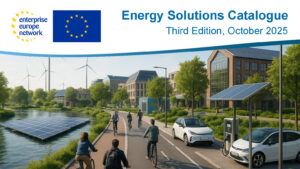TRNL20220601016 – A Dutch government agency and part of a consortium launched a market consultation for a solution to the rapid detection and identification of drugs in prisons.
A Dutch government agency and part of a consortium of 4 governmental agencies that control all prisons in the Netherlands, Greece, Belgium and Spain, is looking for providers of innovative solutions for the detection of drugs. To find the right technology they have, together with an international consortium, launched a market consultation. After the consultation a procurement procedure will be conducted to select companies that will sign a commercial agreement. A test phase is foreseen.
A consortium of 4 public buyers from Greece, the Netherlands, Belgium, and Spain with together an average inmate’s population of 40.000, has launched on the 10th of June an Open Market Consultation in order to find out which innovative solutions for detection of drugs in prisons are available on the market.
The consortium aims to procure an innovative solution for the automatic detection and identification of a large range of drugs and traces of drugs in correctional institutions and prisons, that is available 24/7, does not cause delays in internal processes, requires minimal human intervention, and is GDPR compliant. The available budget for this innovation procurement is 3.880 .000 euro.
This request is addressing a need that is widely shared by prisons throughout Europe. During the market consultation, representatives of the Dutch Border Laboratory will also be present as external advisers to the consortium and interested party.
Any interested provider of a suitable solution is invited to participate in a market consultation. Upon reaction to this technology request, interested companies will receive further information, including registration details and an overview of the procurement procedure, to submit their input.
After a successful test phase, a commercial agreement with technical assistance is envisaged.
In order to define their needs, the consortium prepared 10 use-cases (UC) for the detection of drugs:
– UC-1 On the body inmate
– UC-2 On the body visitor
– UC-3 On the body staff
– UC-4 Letter inmates
– UC-5 Packages inmates
– UC-6 Packages suppliers
– UC-7 Luggage visitor
– UC-8 Luggage staff
– UC-9 Inside the body inmate
– UC-10 Room inside the prison
These use-cases explain how the 4 buyers desire to conduct the detection of drugs within the prisons in the future. The use-cases cover the main situations in which the buyers are planning to apply the detection solution(s). All use-cases are in principle relevant for the 4 Buyers. They are presented in random order, as the importance of the use-cases may differ per Buyer.
Based on the input received during the open market consultation, the buyers will decide to purchase one or more devices that can address most or all the use-cases and that present a positive business-case (namely, can be deployed in as many prisons as possible within the available budget).
Expected role of partner sought:
Type of partner: SMEs or big companies (the provider) are sought.
Role of the partner/provider:
Any interested provider of a suitable solution is invited to participate in a market consultation.
The market consultation starts on the 10th of June and consists of:
• A workshop on the 7th on July at Sheraton Hotel at Brussels Airport to hear more details about the project and meet other organisations that offer or develop innovative solutions for drug detection. In case of an EOI registration information will be supplied.
• A request to reply to a questionnaire regarding your organisation and the solution that you are offering for detection of drugs (link will be made available upon registration to the workshop above).
• 4 days of one-on-one meetings with the consortium between 12-15th of July, to engage in a dialogue with the Buyers regarding the most suitable innovative solution and clarify your answers to the questionnaire.
Note: Personal data will be treated as strictly confidential according to the Data Protection Directive (Directive 95/46/EC of the European Parliament and of the Council) and the General Data Protection Regulation (Regulation 2016/679 of the European Parliament and of the Council).
For more information you can contact:
Twjan Tan – twjan.tan@rvo.nl



